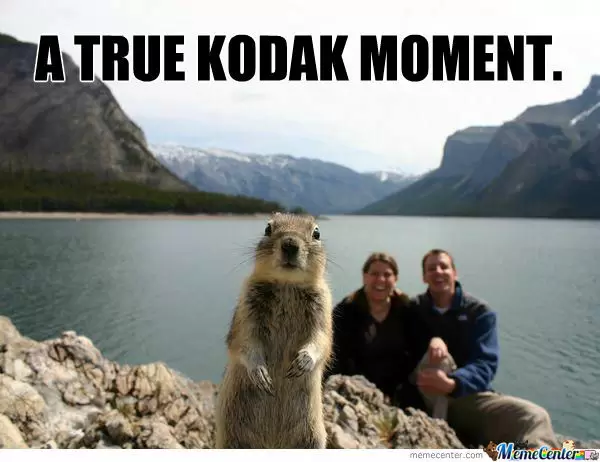Nokias history traces back to 1865 when an engineer founded a paper mill operation. Today we know its name for the rapid loss of market share to competition.
When Apple launched the iPhone in 2007, Nokia owned over 60% of the mobile phone market and second place was at 12%. In the same year, Google revealed that they had developed a smartphone operating system in secret: Android. The real smartphone success story started when Apple's and Google's app stores opened in 2008. Meanwhile Nokia's marketshare had fallen to 40%. What would you do as Nokia?
What they did is to open-source the Symbian operating system to counter Android. Their market share stabilized at 40% in 2009. Crisis averted and new equilibrium reached? One year later the market share was below 30%. Apple conquered the high end market share and Android phones everything else. In February 2011, the Nokia CEO Stephen Elop wrote a memo to all staff.
Nokia, our platform is burning.
We are working on a path forward — a path to rebuild our market leadership. When we share the new strategy on February 11, it will be a huge effort to transform our company.
They partnered with Microsoft to sell Windows Phones. Over the next year their market share dropped below 10%. In 2014 the market share was below 5% and they switched to Android as well. It didn't help.
There are plenty of opinions what Nokia should have done differently. Certainly, radical changes were necessary as the iPhone and Android lifted phone capabilities to another level. Nokia is an old company, has transitioned through multiple technologies, and pioneered innovations themselves. However, in this case they picked the wrong path or executed it haphazardly or both. Maybe they should have switched to Android more quickly. Maybe Samsung would have become the king of Android phones anyways.
Sometimes a colleague mentions "Nokia" to emphasize that radical change is necessary and urgent. Usually, there is also a vague suggestion what this radical change should be. However, Nokia also made radical changes and it did not work for them.
Netscape
Another innovative company is Netscape. Founded in 1994, its product was a web browser called Netscape Navigator. One year later it had 80% market share but then Microsoft got involved with Internet Explorer and the first browser war ensued.
In 1998, IE had caught up to 40-50% of marketshare. Netscape decided to implement a radical change and gave away their browser for free. Also its source code. A community formed under the name Mozilla to maintain the code base. They describe the reasons for that move:
It was intended to harness the creative power of thousands of programmers on the internet and fuel unprecedented levels of innovation in the browser market.
Meanwhile Netscape further developed their own Enterprise version. Frustrated with the code, they decided to rewrite the browser from scratch. When Netscape released the new version three years later, Joel Spolsky made a famous blog post:
[Netscape made] the single worst strategic mistake that any software company can make:
They decided to rewrite the code from scratch.
What Joel suggests is the opposite of the "Nokia" suggestion: One should not go for the radical change to rewrite larger applications from scratch. It probably set Netscape and Mozilla back years compared to the competition.
Was it really the wrong decision though? That browser engine they created from scratch is Gecko, one of the two browser engines today. Microsoft, Google, and Apple all use descendants of KDE's KHTML engine. Since Gecko is still alive today, the decision to abandon the old engine seems to be good long-term. Maybe too-long term. Internet Explorer achieved well over 90% market share in 2002 and Microsoft had won the first browser war. Looking at the related antitrust case, I doubt that Netscape's decision to rewrite the browser engine had a big effect on the outcome.
Kodak Moments
When I started to write this article, my aim was to compare "Nokia Moments", where radical change is necessary, and "Netscape Moments", where radical change must be avoided. Instead, I learned that history is not clear at all: There were no "moments" but it all stretched over years. Nokia did in fact make radical changes. Netscape might have faced the same fate without the rewriting.
A good example though are "Kodak Moments", originally a marketing slogan describing meaningful personal snapshots:

Kodak was the dominant film company in the US during most of the 20th century. They were innovative and developed the first digital camera in 1975. However, their main business was still in analog film. When the world switched to digital pictures at the end of the 20th century, they failed to find a profitable business. Meanwhile its direct competitor Fuji did by aggressively diversifying into many different businesses.
Surprisingly, Kodak acted like a stereotypical change-resistant Japanese firm, while Fujifilm acted like a flexible American one. –The Economist
In 2012, Kodak filed for bankruptcy. As with Nokia, it wasn't a quick decline. The peak was in 1996, so it took 16 years to bankruptcy. They saw the end of analog film coming, but their challenge was not only to find a profitable business model. They also tried to find one big enough to sustain their existing company. Like Nokia, Kodak did make radical changes but none were good enough. Likewise Fuji made radical changes and it worked for them.
Conclusion
It seems that a business need for radical change was sufficiently clear in all cases. However, it was not clear how to handle it. The successful one, Fuji, transformed into something very different to survive. While it kept its name, it is a different character now.
In summary, it will probably be clear when you have to change radically and you have some time to act. Good luck finding a good solution.